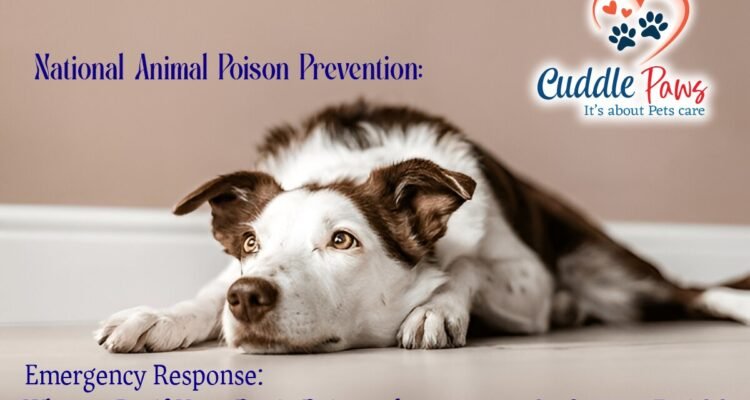Introduction:
As pet owners, we strive to provide our furry friends with a safe and loving environment. However, accidental poisoning can happen even under the watchful eye of the most diligent pet parent. Understanding how to respond in such situations can make all the difference between life and death. In this article, we’ll delve into the critical steps to take if you suspect your pet has been poisoned and some preventative measures to safeguard your home.
Recognizing the Signs of Poisoning:
Before we dive into emergency response, let’s identify some common signs of poisoning in pets. These can vary depending on the toxin but often include:
- Vomiting or diarrhea
- Difficulty breathing
- Excessive drooling
- Seizures or tremors
- Loss of appetite
- Lethargy or weakness
- Changes in behavior (e.g., agitation, confusion)
- Unusual odor from the mouth or body
If you notice any of these symptoms, especially if they appear suddenly, it’s crucial to act quickly.
Monty the Giant Schnauzer Claims Victory at the 149th Annual Westminster Kennel Club Dog Show
Immediate Steps to Take:
- Stay Calm and Assess the Situation:Your pet needs you to be level-headed. Panicking will only delay action. Quickly assess what your pet might have ingested or come in contact with.
- Remove Your Pet from the Hazard:If the source of poisoning is still within reach, move your pet away from it to prevent further exposure.
- Contact a Veterinarian or Animal Poison Control:Don’t try to induce vomiting or give any home remedies without professional advice. Contact your veterinarian or the ASPCA Animal Poison Control Center (APCC) at (888) 426-4435. Keep these numbers handy or programmed into your phone.
- Gather Information:While on the call, provide as much information as possible, including your pet’s breed, age, weight, symptoms, and the substance they ingested, if known. This information helps experts determine the best course of action.
- Follow Professional Advice:Depending on the situation, you might be instructed to bring your pet to the vet immediately or to monitor them at home with specific guidelines.
- Bring the Poison to the Vet:If possible, safely collect a sample of the poison, its packaging, or plant material to assist in diagnosis and treatment.
Prevention is Key:
The best way to handle pet poisoning is to prevent it from happening in the first place. Here are some tips:
- Pet-proof Your Home: Keep medications, cleaning supplies, and other potentially toxic substances in secure, high places out of reach.
- Educate Yourself: Familiarize yourself with common household toxins, such as chocolate, grapes, xylitol (found in sugar-free gum), and certain houseplants.
- Dispose of Trash Properly: Ensure garbage cans have secure lids to prevent scavenging.
- Supervise Outdoors: Keep an eye on your pet when they’re outside to avoid ingestion of harmful plants or substances.
10 Habits of Highly Responsible Pet Owners: A Guide to Pet Care
Conclusion:
While no pet owner wants to imagine their beloved companion in distress, being prepared for emergencies like poisoning can be life-saving. By knowing the signs, acting swiftly, and taking preventative measures, you can protect your pet from many common household dangers.
Remember, in any emergency, your calm and informed response can make all the difference. Keep the contact details of your vet and the ASPCA Animal Poison Control Center in an easily accessible place. Let’s ensure our homes are safe havens for our furry family members, full of love, joy, and watchful care.

